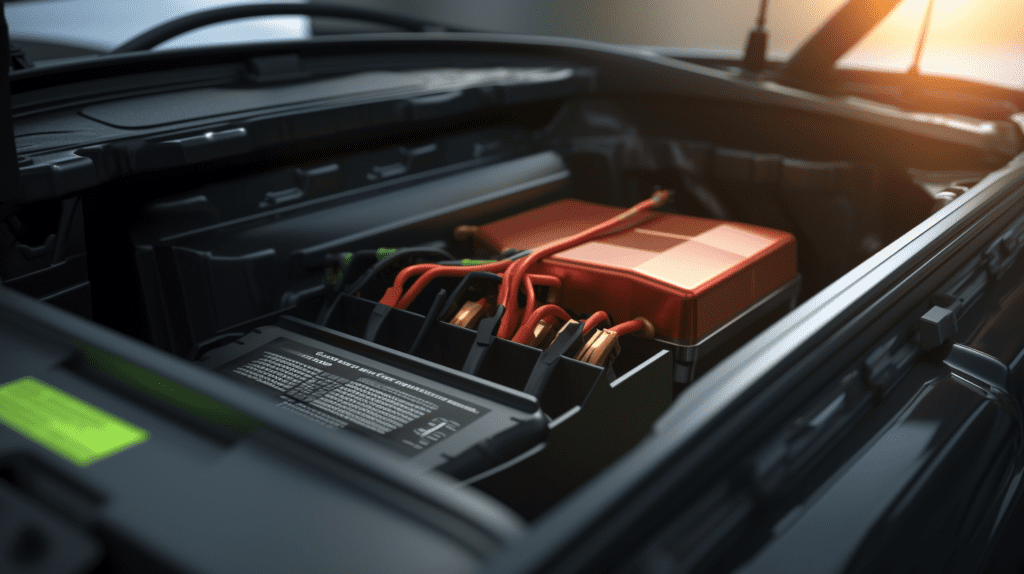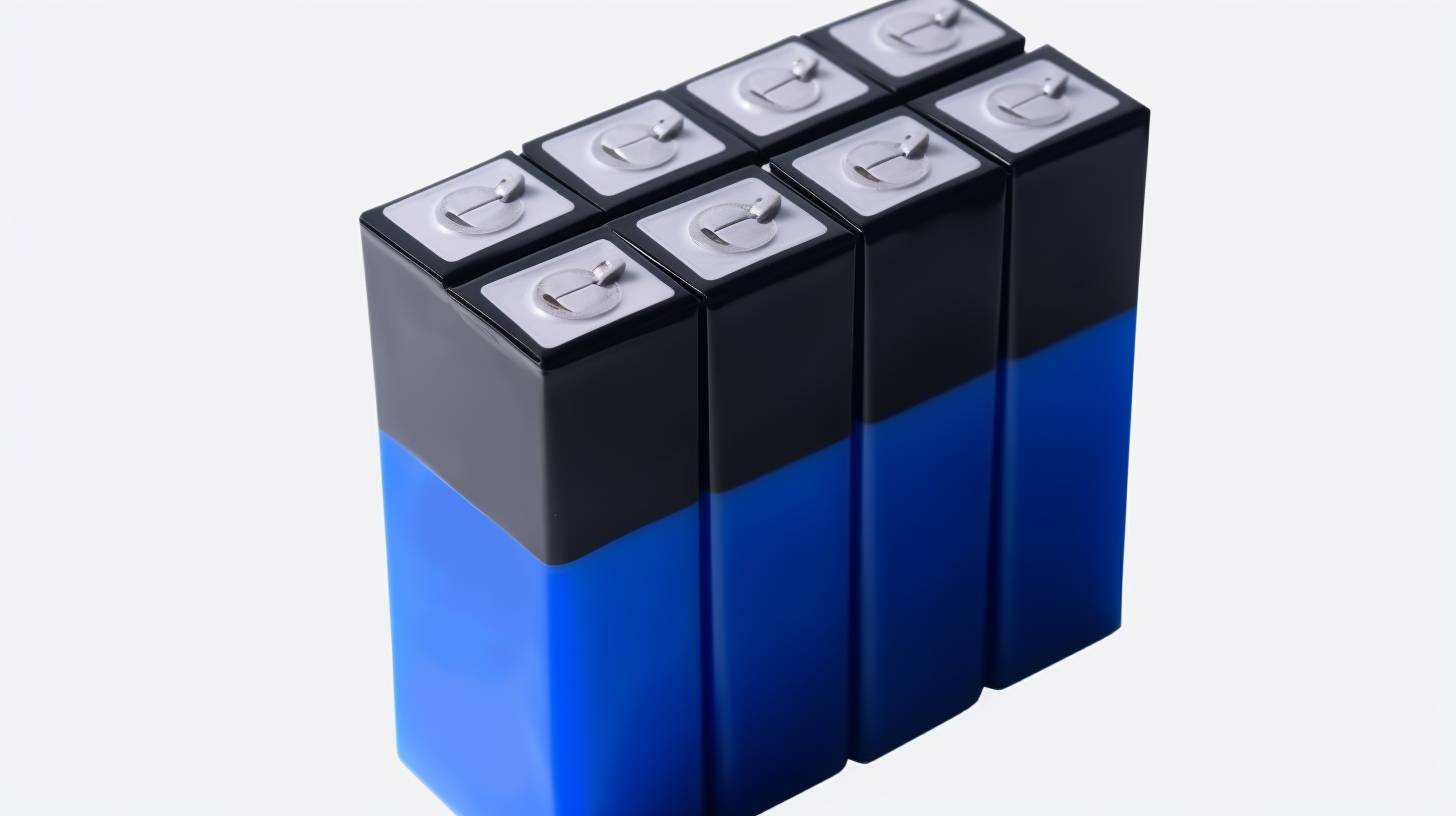The Dos and Don’ts of Disposing Lithium Batteries: A Complete Guide
Title: The Dos and Don’ts of Disposing Lithium Batteries: A Complete Guide
Introduction:
Welcome to our comprehensive guide on the proper disposal of lithium batteries! In today’s tech-driven world, these compact powerhouses are found in everything from smartphones and laptops to electric vehicles. But what happens when they reach the end of their life cycle? That’s where we come in.
Properly disposing of lithium batteries is not only essential for environmental sustainability but also for your safety. These energy-packed marvels can pose potential hazards if mishandled or improperly discarded. To ensure you navigate this process with ease and responsibility, we’ve compiled a complete guide on the dos and don’ts of disposing lithium batteries.
So let’s dive right in as we demystify everything you need to know about identifying products with lithium batteries, understanding the hazards of improper disposal, finding recycling centers near you, and much more! Whether you’re a conscious consumer or an environmentally responsible professional, this guide has got you covered!
Remember – together we can make a positive impact by adopting best practices when it comes to responsibly disposing of these powerful yet potentially dangerous devices. Let’s get started!

#post_seo_title
Why Proper Disposal of Lithium Batteries is Important
Why Proper Disposal of Lithium Batteries is Important:
Lithium batteries may be small, but their impact on the environment can be significant. Improper disposal can lead to hazardous chemicals seeping into soil and water, causing pollution and harming ecosystems. Additionally, these batteries pose fire risks if mishandled or damaged. Responsible disposal ensures a safer environment for all while promoting sustainability in our tech-driven world.
General Information about Lithium Batteries
Lithium batteries have become increasingly popular due to their high energy density and long-lasting power. These batteries are commonly found in portable electronic devices such as smartphones, laptops, and tablets. Unlike traditional alkaline batteries, lithium batteries use a lithium compound as the positive electrode material, which allows for efficient charging and discharging. Understanding the basics of lithium battery composition is crucial for proper disposal and environmental responsibility.
How to Identify Products with Lithium Batteries
When it comes to identifying products with lithium batteries, there are a few key things to look out for. First, check the packaging or product label for any mentions of lithium-ion or rechargeable batteries. Additionally, be on the lookout for specific symbols such as a crossed-out trash can or the letters Li-ion. Don’t forget to read instruction manuals and product descriptions too – they often provide valuable information about battery types used. Stay informed and be proactive in identifying these products!
The Hazards of Improper Disposal
Improper disposal of lithium batteries can have serious consequences. These powerful energy sources contain toxic metals and chemicals that can leak into the environment, contaminating soil and water sources. This poses a risk to wildlife, plants, and humans alike. Additionally, when lithium batteries are incinerated or thrown in regular trash bins, they can cause fires or explosions due to their volatile nature. It’s crucial to handle these batteries with care and dispose of them properly to protect our planet and prevent potential disasters.
The Dos of Disposing Lithium Batteries
Finding a Recycling Center
Proper disposal of lithium batteries starts with finding a recycling center near you. Many local communities have designated drop-off locations where you can safely dispose of your used batteries. Do some research online or contact your local waste management facility to find the nearest recycling center. By taking this simple step, you’ll be ensuring that these potentially hazardous materials are handled and recycled responsibly.
Finding a Recycling Center
Finding a recycling center for your lithium batteries is an important step in responsible disposal. Start by checking with local waste management agencies or search online directories for drop-off locations near you. Some retailers and manufacturers also offer battery recycling programs. Remember, proper disposal helps protect the environment and ensures the safe handling of these potentially hazardous materials. Stay tuned for more tips on how to dispose of lithium batteries responsibly!
Turning in Your Batteries
Turning in your batteries is a crucial step in the proper disposal process. Many retailers and manufacturers offer recycling programs where you can drop off your old lithium batteries for safe handling. Take advantage of these convenient options to ensure that your batteries are recycled correctly, minimizing the environmental impact. Remember, every battery counts when it comes to protecting our planet!
Safety Measures for Transportation
Safety Measures for Transportation:
When it comes to transporting lithium batteries, safety should be your top priority. To ensure a smooth and accident-free journey, here are some important precautions to take. First, always store batteries in their original packaging or use specially designed battery cases. This will protect them from physical damage and prevent short circuits during transit. Additionally, avoid storing loose batteries together with metal objects that could cause accidental contact or sparks. If you’re traveling by air, make sure to follow the guidelines set by airlines regarding lithium battery transportation. By taking these safety measures seriously, you can transport lithium batteries safely and responsibly!
Proper Storage of Lithium Batteries
Proper Storage of Lithium Batteries
When it comes to storing lithium batteries, safety should always be a top priority. Keep them in a cool, dry place away from direct sunlight and extreme temperatures. Avoid storing them near flammable materials or liquids. It’s also crucial to keep lithium batteries separate from other types of batteries to prevent short-circuiting or unintentional discharge. Remember, taking these precautions ensures the longevity and safe storage of your lithium batteries!
The Don’ts of Disposing Lithium Batteries
Don’t Throw Lithium Batteries in the Municipal Recycling Bin
Tossing lithium batteries into your regular recycling bin may seem convenient, but it’s a big no-no. These powerful batteries contain hazardous materials that can cause fires and explosions if mishandled. Instead, find a dedicated recycling center or drop-off location near you to ensure proper disposal.
Don’t Put Lithium Batteries in the Trash
While it might be tempting to simply toss your used lithium batteries in the trash, this is another major don’t. Remember, these batteries are not like your everyday household waste. They have the potential to leak harmful chemicals, contaminate soil and water sources, and pose serious risks to human health.
Don’t Incinerate Lithium Batteries
Incinerating lithium batteries is an absolute don’t! Burning them releases toxic fumes into the air and contributes to air pollution. Not only is this harmful for the environment, but it also poses significant risks for those working at incineration facilities. Keep our planet safe by avoiding this dangerous disposal method.
Remember: improper disposal of lithium batteries can have severe consequences for both people and our ecosystem. Stick with us as we dive into how you should correctly dispose of these potent power sources!
Don’t Throw Lithium Batteries in the Municipal Recycling Bin
Don’t Throw Lithium Batteries in the Municipal Recycling Bin
When it comes to disposing of lithium batteries, throwing them in the municipal recycling bin is a big no-no. These batteries contain hazardous materials that can contaminate other recyclables and cause serious damage. Instead, seek out specialized recycling centers or drop-off locations that handle these types of batteries safely. Let’s explore why this simple action can make a huge difference for our environment!
Don’t Put Lithium Batteries in the Trash
Don’t Put Lithium Batteries in the Trash
When it comes to disposing of lithium batteries, throwing them in the trash is a big no-no. These little powerhouses contain hazardous materials that can cause serious harm to the environment if not handled properly. Instead, take them to a designated recycling center or contact your local waste management facility for guidance on safe disposal methods. Let’s do our part and keep these powerful batteries out of our landfills!
Don’t Incinerate Lithium Batteries
Don’t Incinerate Lithium Batteries
Incinerating lithium batteries is a big no-no! Why? Because when these batteries are burned, they release toxic chemicals into the air. This not only pollutes our environment but also poses serious health risks to humans and animals. So, instead of tossing them in the flames, be responsible and find proper disposal methods for your lithium batteries. Let’s keep our planet clean and safe!
How to Dispose Lithium Batteries: Consumer vs. Professional
When it comes to disposing of lithium batteries, consumers and professionals have different options. Consumers can find recycling centers or turn in their batteries at designated drop-off locations. It’s important to follow safety measures during transportation and store the batteries properly. Professionals, on the other hand, must comply with specific regulations and guidelines for handling and disposal. Both approaches contribute to environmental responsibility in their own way!
Best Practices for Environmental Responsibility
Best Practices for Environmental Responsibility
Being environmentally responsible is crucial when it comes to disposing of lithium batteries. It’s not just about following the rules, but also taking that extra step to protect our planet. By recycling your batteries at a certified center, handling them safely during transportation, and storing them properly, you’re doing your part in preserving the environment for future generations. Let’s all strive for a greener and cleaner world!
Resources for Proper Disposal of Lithium Batteries
Resources for Proper Disposal of Lithium Batteries
When it comes to properly disposing of lithium batteries, there are several resources available to help you navigate the process. These resources can provide you with valuable information on recycling centers, drop-off locations, and other disposal methods in your area.
1. Call2Recycle: This is a free program that offers convenient collection sites throughout the United States and Canada. They accept all types of rechargeable batteries, including lithium-ion batteries commonly found in electronic devices.
2. Earth911: Their website allows you to search for local recycling facilities by entering your zip code and the type of material you need to dispose of. They have an extensive database that includes locations that accept lithium batteries.
3. Local Waste Management or Recycling Centers: Many municipalities have dedicated facilities where residents can drop off hazardous waste materials such as lithium batteries. Check with your local waste management department or recycling center for more information.
4. Retail Stores: Some retailers offer battery take-back programs where they accept used batteries from customers for proper disposal or recycling. This is especially common among stores that sell electronics or household appliances.
Remember, it’s always important to check with these resources before dropping off your lithium batteries as guidelines may vary depending on location and regulations.
By taking advantage of these resources, you can ensure that your old lithium batteries are disposed of safely and responsibly without harming the environment or posing a risk to human health.
So remember – when it comes time to say goodbye to your old lithium-powered devices – don’t just throw them in the trash! Take a few extra minutes to find a proper disposal method near you because every small action makes a big difference in protecting our planet!
Dispose responsibly today for a greener tomorrow!


